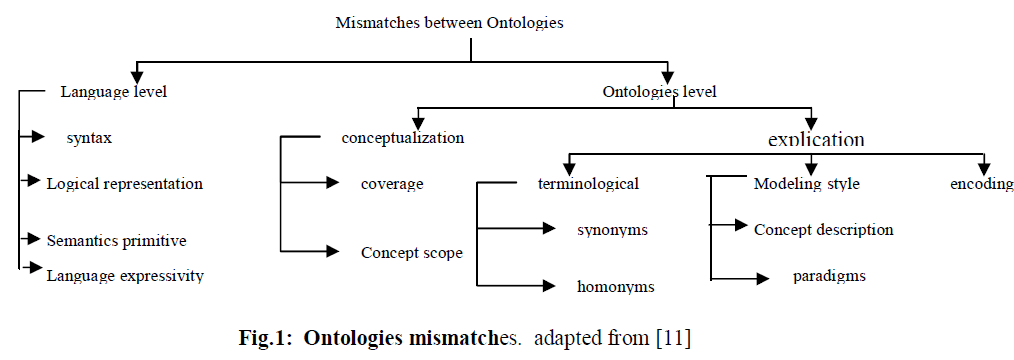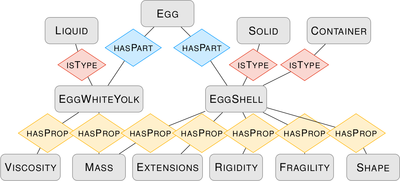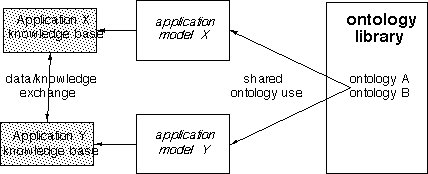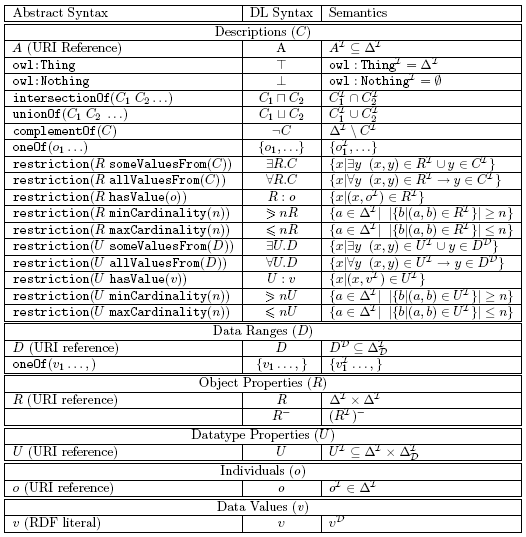$ 0.121 -0.47%
Ontology (ONT) Rank 375
Ontology (ONT) describes itself as a “high-performance public multi-chain project and a distributed trust collaboration platform.†Ontology was created to help businesses adopt blockchain technology and compete with projects like Tron and VeChain Thor. Ontology offers several distributed services including data exchange, data collaboration, digital identity authentication, blockchain creation, smart contracts, security protocols, and software development kits (SDK) among others. Ontology was created in 2017 by the Shanghai-based company called OnChain, which is led by co-founders Erik Zhang, Jun Li, and Da HongFei. Before creating Ontology, OnChain founded the NEO blockchain (formerly called Antshares) in 2014. At the time of this writing, NEO is a top 20 cryptoasset ranked by market cap. Ontology started off as a NEP-5 token on the NEO blockchain (which is comparable to an ERC-20 token on the Ethereum blockchain) but moved to its own blockchain in June of 2018. Despite sharing the same parent company, Ontology and NEO are independent projects with different goals. That said, the two projects have collaborated on building and promoting a NEO smart contract ecosystem. Ontology employs a dual token system that consists of the ONT staking token and the ONG utility token. ONT is used to stake and secure the blockchain while ONG is used to pay for token transactions, network storage, and the execution of smart contracts. ONT tokens release ONG tokens which means ONT token holders will periodically receive ONG tokens. Ontology’s consensus mechanism is called VBFT, which combines three different consensus protocols: proof-of-stake (PoS), Byzantine Fault Tolerant (BFT), and Verifiable Random Function (VRF). Users who wish to stake ONT are required to set up a node on the Ontology platform. In return for staking their ONT tokens, stakers receive a portion of network, storage, and smart contract execution fees. ONT holders are able to vote on major upgrades and proposals for the Ontology network. Instead of an ICO, in March 2018, Ontology gave away ONT tokens to their email newsletter subscribers and airdropped ONT tokens to NEO token holders. In the end, 20 million ONT tokens were distributed to the community. The max supply of ONT is 1 billion. Each ONT token is indivisible and all were mined in the genesis block. The max supply of ONG is 1 billion as well and is divisible to nine decimal points.
| Mkt.Cap | $ 121.34 M | Volume 24H | 10.33 MONT |
| Market share | 0% | Total Supply | 1000 MONT |
| Proof type | PoS | Open | $ 0.12 |
| Low | $ 0.12 | High | $ 0.12 |
What is difference between epistemological truth and ontological truth?
Ontology is the philosophical study of the nature of being, becoming, existence, or reality. It is part of the major branch of philosophy known as metaphysics. There is an established and long philosophical history of the concept of atoms as microscopic physical objects.
Hindu philosophy

Causation between actual entities is essential to their actuality. Consequently, for Whitehead, each actual entity has its distinct and definite extension in physical Minkowski space, and so is uniquely identifiable. A description in Minkowski space supports descriptions in time and space for particular observers.
What is your ontology?
If you are interested in metaphysics and the meaning of existence (and want to impress your friends), ontology may be a good field of study for you. Ontology comes from two Greek words: on, which means "being," and logia, which means "study." So ontology is the study of being alive and existing.
Alternatively, objectivism “is an ontological position that asserts that social phenomena and their meanings have an existence that is independent of social actors”[3]. Concepts are type, sort, category which include the abstract groups, sets and collection of objects. Ontologies vary based on whether a class can contain other class or whether a class can belong to itself. Indeed, Ontology is the study of reality whilst epistemology is associated to what constitutes valid knowledge. Ontology is supported by objectivism, thus has ability to be proven .For example, organisations in which we carry out data collections for our research exists in reality and can thus be proven.
Teachers would have no reason to give tests or assign class work because there would be no difference between truth and error. We need epistemology in order to accept reality and live our lives in successful pursuit of truth. It involves an awareness of certain aspects of reality, and it seeks to discover what is known and how it is known.
What is difference between epistemology and ontology?
a) Formal ontology was introduced by Edmund Husserl in his Logical Investigations (1): according to Husserl, its object is the study of the genera of being, the leading regional concepts, i.e., the categories; its true method is the eidetic reduction coupled with the method of categorial intuition.

However, unlike taxonomies or relational database schemas, for example, ontologies express relationships and enable users to link multiple concepts to other concepts in a variety of ways. "Denoting Concepts, Reference, and the Logic of Names, Classes as Many, Groups and Plurals",Linguistics and Philosophy vol. (uncountable, philosophy) The study of the origin, nature, functions, types, and interrelations of values; value theory.(countable) The particular value theory of a philosopher, school of thought, etc.In his axiology, G. E. Moore maintains that "good" is the name of a simple, indefinable quality. We accept unequivocally that the framework does not get close to accommodating the depth and diversity of philosophy.
Many cases, however, are less straightforward, and it is not always easy to distinguish when entities stand in ontological rather than causal relations. We could argue that the formation of the Triple Alliance is only causally related to the war because it took place long before the war began.

(uncountable, philosophy) The branch of metaphysics that addresses the nature or essential characteristics of being and of things that exist; the study of being qua being. An example of ontology is when a physicist establishes different categories to divide existing things into in order to better understand those things and how they fit together in the broader world.

What does it mean to be ontological?
Axioms. assertions (including rules) in a logical form that together comprise the overall theory that the ontology describes in its domain of application. In these disciplines, axioms include only statements asserted as a priori knowledge. As used here, "axioms" also include the theory derived from axiomatic statements
5. Key Domains Addressed by Social Ontology
Who created ontology?
Ontology Use Cases In a nutshell, ontologies are frameworks for representing shareable and reusable knowledge across a domain. Their ability to describe relationships and their high interconnectedness make them the bases for modeling high-quality, linked and coherent data.
An important type of relation is the subsumption relation (is-a-superclass-of, the converse of is-a, is-a-subtype-of or is-a-subclass-of). For example, we have already seen that the class Ford Explorer is-a-subclass-of 4-Wheel Drive Car, which in turn is-a-subclass-of Car. Ontologies are only true ontologies if concepts are related to other concepts (the concepts do have attributes).
You must create an account to continue watching
Probably one can say that ontology of reality does not admit of any description, since it then becomes its epistemology. Epistemology is the philosophical field revolving around (the study of) knowledge and how to reach it. (computer science, information science) A structure of concepts or entities within a domain, organized by relationships; a system model. (logic) A logical system involving theory of classes, developed by Stanislaw Lesniewski ( ). (countable, philosophy) The theory of a particular philosopher or school of thought concerning the fundamental types of entity in the universe.
For example, to the right is the partial diagram of an ontology that has a partition of the Car class into the classes 2-Wheel Drive Car and 4-Wheel Drive Car. The partition rule (or subsumption rule) determines if a particular car is classified by the 2-Wheel Drive Car or the 4-Wheel Drive Car class. Importantly, a class can subsume or be subsumed by other classes; a class subsumed by another is called a subclass (or subtype) of the subsuming class (or supertype). For example, Vehicle subsumes Car, since (necessarily) anything that is a member of the latter class is a member of the former.
Concepts
- Ontology as a discipline is a method or activity of enquiry into philosophical problems about the concept or facts of existence.
- A population of objects copied in the right way, and copied because they perform a function, form a “reproductively established family”.
- Ontology is supported by objectivism, thus has ability to be proven .For example, organisations in which we carry out data collections for our research exists in reality and can thus be proven.
- In this theory, a given person’s social categorycha-cha is an idea in that person’s mind, formed out of combinations of impressions or other ideas internal to that person’s mind.

If the partition rules ensure that every concrete object in the super-class is an instance of at least one of the partition classes, then the partition is called an exhaustive partition. Ontologies vary on whether classes can contain other classes, whether a class can belong to itself, whether there is a universal class (that is, a class containing everything), etc. Sometimes restrictions along these lines are made in order to avoid certain well-known paradoxes.
What is ontology in simple terms?
Ontology is the philosophical study of being. More broadly, it studies concepts that directly relate to being, in particular becoming, existence, reality, as well as the basic categories of being and their relations.
Ontology of fictional characters

Accordingly, objectivism (orpositivism) and subjectivism can be specified as two important aspects of ontology. Repeat for Pizza, but untick Make classes disjoint because we will make some of these classes defined, so we will add the disjoints afterwards. It is useful for a very fast version to know which are going to be defined classes. The individuals in an ontology may include concrete objects such as people, animals, tables, automobiles, molecules, and planets, as well as abstract individuals such as numbers and words.
Temporal, spatial, corporeal, epistemological and performative relations are taken to be central to understanding a dominant formation. That is, a particular ontological formation is based on how ontological categories of time, space, embodiment, knowing and performing are lived—objectively and subjectively. Different ontological formations include the customary (including the tribal), the traditional, the modern and the postmodern. The concept was first introduced by Paul James' Globalism, Nationalism, Tribalism[18] together with a series of writers including Damian Grenfell and Manfred Steger.

If we were trying to explain the nature of water, it would hardly do to say that it is built out of watery parts. Likewise, it is unclear what we have accomplished if we argue that social entity x is ontologically determined by social entity y, and then that y in turn is partly ontologically determined by x. More recent theories depart from psychologism by introducing additional entities into the determination base of social entities. Kincaid 1986, for instance, claims that the social supervenes on individualistic properties and relations andactions. Other theories argue that among the constituents of the social are also resources and other features of the world.
The components of ontology are individuals, classes, attributes and relationships. In ontology, concepts refer to objects, which will be organized, attributes are the traits of the objects, relationships connect two concepts and instances are the actual data in an information system [7]. "Ontology concerns researchers’ assumptions about the nature of the world and reality.Ontological assumptions you make determine what research objects and phenomena you focus on, and how you see and approach them". " Epistemology concerns assumptions about knowledge – how we know what we say we know, what constitutes acceptable, valid and legitimate knowledge, and how we can communicate knowledge to fellow human beings".
But the notion of man is real; it derives its reality from its reference to those many actual occasions, each of which is an actual entity. An actual occasion is a concrete entity, while terms such as 'man' are abstractions from many concrete relevant entities. Distinguishing causation from ontology does not imply that causal relations are ontologically irrelevant.
The subsumption relation is used to create a hierarchy of classes, typically with a maximally general class like Anything at the top, and very specific classes like 2002 Ford Explorer at the bottom. The critically important consequence of the subsumption relation is the inheritance of properties from the parent (subsuming) class to the child (subsumed) class.
Functionalism in social theory is predominantly an approach to social explanation, providing causal accounts for the existence and maintenance of social entities in terms of the functions they serve for society. Some functionalist theories also make ontological claims, arguing that the nature of social entities involves their functions. Many philosophical traditions investigate how individuals mentally construct, organize, categorize, or represent social objects—and objects more generally.
Specific theories of the setup of the social world include theories of convention, law, collective acceptance, structure, practices, and more (see section 4). A theory of law, for instance, may propose that certain lawmaking systems are set up by specific beliefs and practices of members of the society. Here, a set of social entities—legislative systems—stand in some relation R2 to a set of other entities—member beliefs and practices. Perhaps the R2 relation (or relations) is the same as the R1 relation.

Other approaches also see social categories as being set up by the distributed mental states of members of a society. Many of these theories are less specific about the particular states that individuals must be in.
The subsumed class (subclass) inherits the properties from the subsuming class (parent class). This means, anything that is necessarily true about the parent class must be necessarily true in a subsumed child class. In ontologies, the class which has a single parent is considered as single inheritance where as if a class has many parents it is considered as multiple inheritances. In multiple inheritances all necessary properties of the subsuming classes are inherited by subsumed class.

Historically, erroneous ontological claims have contributed to and been used to justify social oppression. Claims about the genetic nature of race, for instance, are historically tied to claims about intellectual, character, and cultural differences between racial groups. Likewise, claims about the nature of gender differences are historically tied to claims about how women ought to behave. Dualism about the social is the view that social and non-social entities—such as societies and individuals, or structures and agents—are distinct, and neither is grounded in the other.
In her approach, the kindmarriage is partly set up by millions of particular marriages copied one from another in a reproductively established family. Particular marriages—the actual members of the kind—figure into setting up the kind marriage to have the membership conditions it does. Contrast this with a mentalistic account of the kind marriage. According to that sort of theory, particular marriages are members of the kind, and may play a causal role in triggering people to have certain attitudes. But it is the attitudes that define the kind; the tokens do not play an ontological role.








